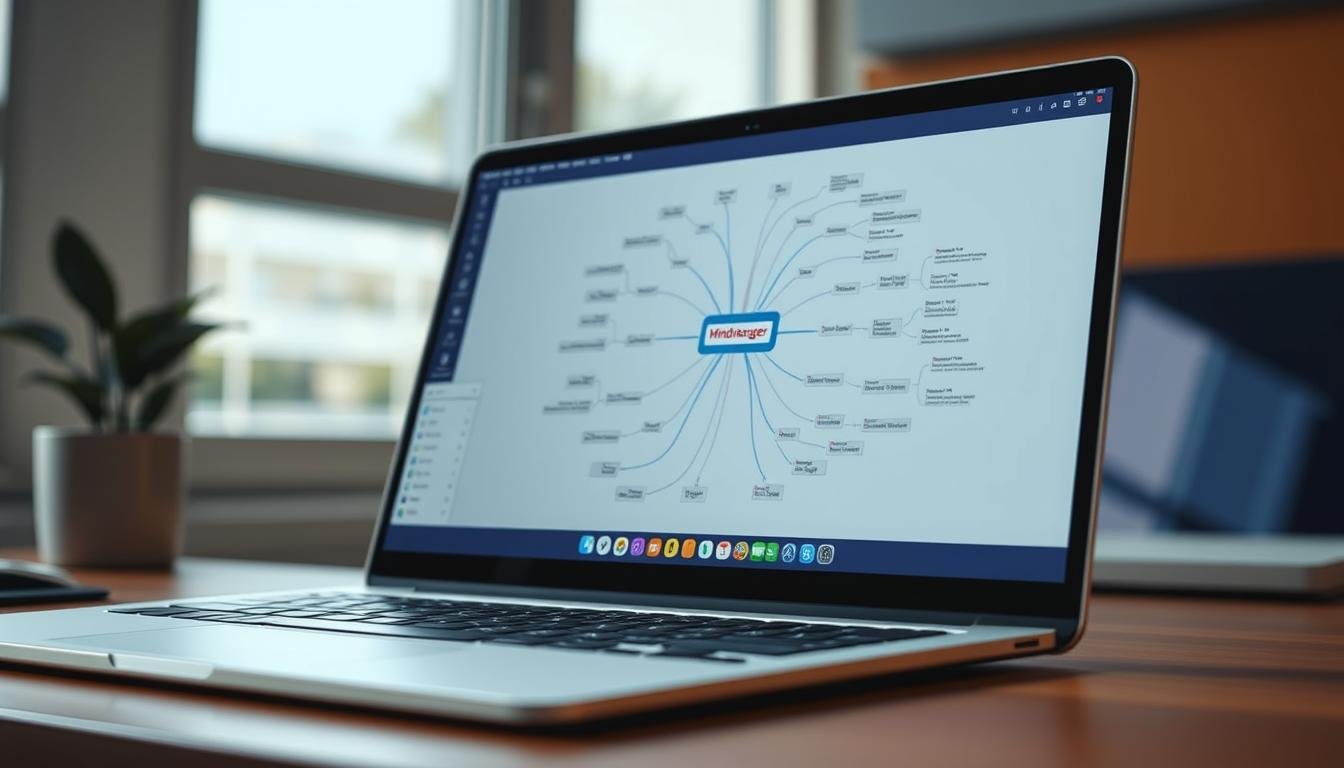Have you ever wondered why, despite your best intentions, you still find yourself putting off important tasks? Procrastination is a universal challenge that affects both personal and professional lives. Studies show that 75% of students identify as habitual procrastinators, and many adults struggle with it too. Whether it’s delaying a work project or avoiding personal goals, procrastination can feel like an endless cycle.
After 20+ years of research and personal experience, I’ve learned that overcoming procrastination isn’t just about willpower. It’s about understanding the root causes and applying science-backed strategies. From practicing self-compassion to building better habits and strategic planning, there are proven ways to break free from this cycle.
Chronic procrastination is more than just a bad habit—it’s linked to stress and mental health challenges. This article will guide you through actionable steps to regain control of your time and boost your productivity. Let’s dive in and explore how you can finally stop procrastinating and start achieving your goals.
Key Takeaways
- Procrastination affects 75% of students and many adults.
- It’s more than a habit—it’s tied to stress and mental health.
- Overcoming procrastination requires understanding its root causes.
- Self-compassion and habit-building are key strategies.
- Strategic planning can help break the cycle of delay.
- Science-backed methods can improve productivity and focus.
Understanding Procrastination: What It Is and Why It Happens
Procrastination isn’t laziness—it’s a failure in self-regulation driven by psychological factors. Many people mistake it for poor time management, but the truth is deeper. It’s about the struggle to prioritize long-term goals over immediate gratification. This behavior affects 75% of students and countless adults, making it a widespread challenge.
The Psychology Behind Procrastination
At its core, procrastination is tied to present bias. This psychological tendency makes us choose short-term rewards, like watching TV, over long-term tasks, like preparing taxes. Our brains are wired to avoid discomfort, even if it means delaying important work.
Cognitive distortions also play a role. Many people overestimate their future motivation or time, thinking, “I’ll do it tomorrow.” This flawed thinking leads to repeated delays. Negative self-talk amplifies these emotions, making tasks feel even more daunting.
Common Causes of Procrastination
Mental health is a significant factor. Depression reduces energy, while ADHD increases distractibility, making task initiation harder. Perfectionism, often seen in OCD sufferers, can also fuel procrastination. The fear of making mistakes paralyzes action.
Some people thrive under pressure, earning the label “crisis-makers.” They delay tasks until the last minute, relying on adrenaline to get things done. While this might work occasionally, it’s not a sustainable strategy.
Understanding these causes is the first step toward overcoming procrastination. By addressing the root issues, you can develop strategies to regain control and boost productivity.
The Impact of Procrastination on Your Life
Chronic procrastination can silently disrupt your work, relationships, and well-being. It’s not just about missing deadlines—it’s about the long-term effects that ripple through every area of your life. From mental health struggles to financial setbacks, the consequences are far-reaching.
How Procrastination Affects Mental Health
Procrastination and stress often go hand in hand. Chronic procrastinators report 27% higher stress levels, which can lead to insomnia and a weakened immune system. This constant pressure creates a cycle of anxiety, making it harder to start tasks.
Depression is another common outcome. Unmet goals and self-criticism can spiral into feelings of worthlessness. A study by Carleton University found that self-forgiveness can break this stress-procrastination loop, offering a path to better mental health.
The Consequences of Chronic Procrastination
Financially, procrastination can be costly. Late fees on 23% of procrastinated bills add up quickly. Academically, 50% of habitual student procrastinators face significant consequences, like lower grades or missed opportunities.
In the workplace, last-minute projects often lack quality, leading to missed promotions. Relationships also suffer when commitments are delayed or forgotten. Dean Bokhari highlights how decision fatigue drains energy, making it harder to stay on track.
Breaking free from procrastination isn’t just about productivity—it’s about reclaiming your life and well-being. By addressing its root causes, you can reduce stress, improve your health, and achieve your goals.
Self-Compassion: A Key to Overcoming Procrastination
What if the key to productivity lies in being kinder to yourself? Research shows that low self-compassion predicts a 40% higher chance of procrastination. Instead of beating yourself up for delays, treating yourself with kindness can unlock motivation and help you move forward.
Why Self-Criticism Doesn’t Work
Harsh self-talk like “Why can’t I just get this done?” often backfires. It creates stress, making tasks feel even more overwhelming. Studies reveal that self-criticism leads to emotional flooding, which paralyzes action. Instead of progress, you’re stuck in a cycle of failure and frustration.
How to Practice Self-Compassion
Kristin Neff’s research highlights three elements of self-compassion: self-kindness, common humanity, and mindfulness. Start by reframing your thoughts. For example, replace “I’m so lazy” with “This struggle connects me to all humans.”
Mindfulness helps you stay present during setbacks, preventing emotional overwhelm. Try daily mantras like “I accept this delay and will make things right.” Dean Bokhari’s “Next Action” method is another great tool. Focus on one small step instead of the entire task.
By practicing self-compassion, you can break the stress-procrastination loop. It’s not about perfection—it’s about progress. With these insights, you’ll find it easier to stay motivated and achieve your goals.
The Role of Self-Forgiveness in Reducing Procrastination
Self-forgiveness might be the missing piece in overcoming procrastination. When we delay tasks, guilt and self-criticism often follow, making it harder to take action. Research from Carleton University shows that self-forgiving students reduced subsequent procrastination by 33%. This highlights the power of letting go of guilt to move forward.
Why Forgiving Yourself Matters
Self-criticism after procrastination can trap you in a cycle of failure. Instead of motivating you, harsh self-talk increases stress and makes tasks feel overwhelming. A retribution mindset—focusing on punishment—only deepens the problem. In contrast, a restitution mindset focuses on corrective action, helping you achieve your goals.
For example, if you delay filing taxes, self-blame won’t help. Acknowledge the delay, process your emotions, and take immediate steps to fix it. This 3-step model—acceptance, emotional processing, and restitution—can break the cycle of procrastination.
Steps to Self-Forgiveness
Start by acknowledging the harm caused by your delay. Use the “Amends Formula”: admit the mistake and take corrective action. For instance, if you missed a deadline, apologize and share your plan to make it right. This approach shifts focus from guilt to progress.
Raymond Chandler’s “Write or do nothing” technique is another helpful tool. Set aside time to work on your task or do nothing at all. This reduces pressure and helps you forgive yourself for past delays. Avoid rumination traps by focusing on the present and taking small, actionable steps.
By practicing self-forgiveness, you can reduce procrastination and stay focused on your goals. It’s not about perfection—it’s about progress. With these steps, you’ll find it easier to move forward and achieve your goals.
Effective Strategies to Stop Procrastinating
Struggling to stay on track? Discover proven strategies to regain control of your time and tasks. Whether you’re tackling a big project or daily responsibilities, these methods can help you stay focused and productive.
Breaking Tasks into Smaller Steps
One of the most effective ways to overcome procrastination is to break tasks into smaller, manageable steps. Instead of thinking, “I need to write a report,” start with “Open the document and type the header.” This approach reduces overwhelm and makes it easier to take action.
David Allen’s “Next Action” method boosts completion rates by 45%. Focus on the very next step, no matter how small. For example, if you’re preparing taxes, break it into four weekly 25-minute sessions. This makes the process less daunting and more achievable.
Creating a To-Do List and Prioritizing Tasks
A well-structured to-do list can significantly improve your productivity. Use the Eisenhower Matrix to categorize tasks by urgency and importance. This helps you focus on what truly matters and avoid wasting time on low-priority activities.
Dean Bokhari’s OBT/NMW system is another great tool. Identify your “One Big Thing” (OBT) for the day and your “No Matter Whats” (NMW). This ensures you stay on track with your goals while handling essential tasks.
Pair unpleasant tasks with rewards using “temptation bundling.” For example, listen to your favorite podcast while organizing files. This makes the process more enjoyable and increases your motivation to complete it.
Building Habits to Combat Procrastination
Building habits can transform how you approach tasks and boost your productivity. Habits are the backbone of consistency, helping you stay on track even when motivation wanes. Research shows that decision fatigue reduces willpower by 62% by midday, making routines essential for maintaining energy and focus.
The Power of Routine and Consistency
Routines eliminate the need for constant decision-making, freeing up mental space for important projects. For example, scheduling workouts at the same time each day increases adherence compared to waiting for the “right moment.” Consistency builds momentum, making it easier to tackle tasks without delay.
One effective strategy is “habit stacking,” where you attach new habits to existing ones. If you already drink coffee every morning, use that time to plan your day. This approach leverages established behaviors to create new, productive routines.
How to Develop Productive Habits
Start small to ensure sustainable progress. A 21-day habit formation study found a 40% success rate when participants focused on manageable changes. For instance, commit to writing for 10 minutes daily instead of aiming for a full chapter.
Visual tracking methods like “Don’t Break the Chain” can reinforce habits. Marking each completed day on a calendar creates a sense of accomplishment and motivates you to keep going. Pairing unpleasant tasks with rewards, such as listening to music while organizing files, also boosts motivation.
Finally, avoid multitasking during habit formation phases. Focus on one habit at a time to ensure it becomes second nature. With these strategies, you can build habits that combat procrastination and enhance your productivity.
Managing Distractions and Staying Focused
Do you often find yourself losing focus due to constant interruptions? The average worker faces 56 daily distractions, costing 2.1 hours of productivity. Whether it’s a buzzing phone or an untidy workspace, these interruptions can derail your work and drain your energy. The good news? With the right strategies, you can reclaim your focus and get back on track.
Identifying and Eliminating Distractions
Start by auditing your environment. Is your phone a constant temptation? Try the “phone drawer method”—keep it out of sight to reduce the urge to check it. Unconscious habits, like scrolling through social media, can also steal your focus. Use the “Zombie Scroll” test to track how often you reach for your phone without thinking.
Ergonomic setups can also help. A cluttered desk or uncomfortable chair can trigger physical distractions. Organize your place to minimize these triggers and create a workspace that supports productivity.
Techniques to Improve Focus
One effective method is the Pomodoro technique with a 52/17 work-to-break ratio. Work for 52 minutes, then take a 17-minute break. This rhythm keeps your energy levels steady and prevents burnout. For deeper focus, try “Focus Sprints”—90-minute sessions inspired by Raymond Chandler’s “Write or do nothing” approach.
Noise-canceling headphones paired with brown noise playlists can also help. These tools block out external sounds, allowing you to concentrate better. Finally, implement “Email Windows”—check your inbox only three times a day to avoid constant interruptions.
By managing distractions and improving your focus, you can take meaningful action and achieve your goals more efficiently.
Motivation and Procrastination: Finding the Drive to Act
What keeps you from taking the first step toward your goals? Motivation is often the missing link between intention and action. While procrastination can feel like an insurmountable barrier, understanding how to harness motivation can help you break through and achieve your goals.
Understanding the Role of Motivation
Motivation isn’t just about feeling inspired—it’s about creating systems that keep you moving forward. The Zeigarnik Effect shows that unfinished tasks stay top-of-mind, nudging you to complete them. This psychological insight can be a powerful tool in overcoming procrastination.
Many people wait for inspiration to strike, but research shows that action often precedes motivation. Writers, for example, don’t wait for the perfect moment—they start writing, and the momentum builds. Small wins create a sense of progress, which fuels further action.
How to Stay Motivated Even When You Don’t Feel Like It
One effective strategy is “Motivation Multiplication.” Break tasks into smaller steps and celebrate each completion. This builds momentum and keeps you engaged. Visualization is another powerful tool. Imagine the benefits of completing a task or the consequences of delay. This “Future Self” technique can shift your perspective and drive action.
Create a “motivation menu” with tools like music playlists, scents, or movement breaks. These small boosts can make work more enjoyable. Dean Bokhari’s “Meaningful HQ” method helps track progress, providing a visual reminder of your achievements.
Finally, try “Temptation Bundling.” Pair an unpleasant task with something you enjoy, like watching Netflix while folding laundry. This makes the process more engaging and increases your likelihood of completing it.
By understanding the role of motivation and implementing these strategies, you can overcome procrastination and stay focused on your goals.
Conclusion: Taking Control of Procrastination
Taking control of procrastination starts with small, actionable steps. By combining self-compassion, habit-building, and focus systems, you can break the cycle of delay. Studies show that 75% of students struggle with procrastination, but self-forgiveness can reduce it by 33%. These strategies are backed by science and designed to improve your productivity and overall health.
Start today with a 24-hour action plan using the “Next Action” method. Focus on one small step rather than the entire task. Remember, perfectionism can hinder progress. Aim for consistency, not flawlessness. For deeper insights, explore First Source’s book on overcoming procrastination.
Your worst procrastinated task is just three actions away. Break it down, take the first step, and keep moving forward. Share one strategy with a friend who’s struggling—it’s a powerful way to stay accountable and make progress together.
FAQ
What is procrastination, and why does it happen?
Procrastination is the act of delaying or postponing tasks, often despite knowing the negative consequences. It happens due to factors like fear of failure, lack of motivation, or feeling overwhelmed by the task.
How does procrastination affect mental health?
Chronic procrastination can lead to increased stress, anxiety, and feelings of guilt. Over time, it may also contribute to lower self-esteem and a sense of failure, impacting overall well-being.
Why is self-compassion important in overcoming procrastination?
Self-compassion helps reduce the negative self-talk that often fuels procrastination. By being kind to yourself, you can break the cycle of guilt and stress, making it easier to take action.
How can self-forgiveness help reduce procrastination?
Forgiving yourself for past delays allows you to move forward without dwelling on mistakes. It fosters a positive mindset, making it easier to focus on progress rather than setbacks.
What are some effective strategies to stop procrastinating?
Breaking tasks into smaller steps, creating a to-do list, and prioritizing tasks can make them feel more manageable. Setting clear goals and deadlines also helps maintain focus and momentum.
How can building habits help combat procrastination?
Developing routines and consistent habits reduces the need for constant decision-making. Over time, these habits make it easier to stay productive and avoid delays.
What techniques can improve focus and reduce distractions?
Identifying and eliminating distractions, such as turning off notifications or creating a dedicated workspace, can help. Techniques like the Pomodoro method also improve focus by breaking work into timed intervals.
How can I stay motivated even when I don’t feel like it?
Focus on the benefits of completing the task and remind yourself of your long-term goals. Breaking tasks into smaller, achievable steps can also make them feel less daunting and more rewarding.







